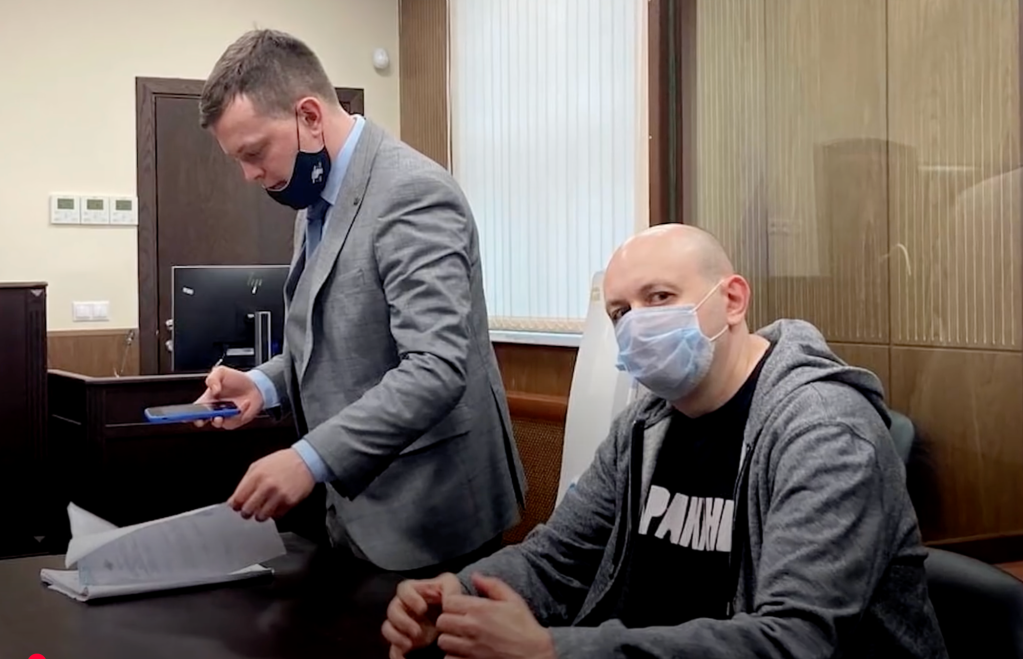Read a version of this story in Vietnamese
A United Nations group has accused Vietnam of unfairly arresting and trying a blogger and activist, who is serving a six-year prison term. The Working Group on Arbitrary Detention said the trial took place under a state judicial practice that could amount to a violation of international law.
Nguyen Lan Thang was jailed for six years in 2023 for “conducting propaganda against the State” under Article 117 of Vietnam’s criminal code.
The U.N. group said in its report, Opinion No. 51/2024, which it released on Wednesday, that Article 117 is so loosely worded that it serves as a trap to catch government critics.
“The language used is overly broad and fails to define key terms, which prevents individuals from regulating their behaviour and ensuring that it is in accordance with the law,” the opinion letter said.
“The Working Group has previously considered that article 117 of the Criminal Code is so vague that it is impossible to invoke a legal basis for detention thereunder and expressly noted that the provision does not meet the standards of the principle of legality due to its vague and overly broad language.”
The group submitted its report to Vietnam on Dec. 10 and said Vietnam had not responded.
Thang, who was a Radio Free Asia blogger, reported on human rights issues since 2011. He was also active in protests over China’s territorial clashes with Vietnam in the South China Sea.
He was arrested on July 5, 2022, kept in solitary confinement for more than seven months and refused visits from his family and lawyer. In February 2023 he was finally allowed to meet his lawyer to prepare for a closed trial in July of that year.
The working group’s document said Thang’s arrest was arbitrary because he was only peacefully exercising his fundamental rights as guaranteed by the International Covenant on Civil and Political Rights, which Vietnam has agreed to follow.
The group also said Thang’s trial was unfair since he was denied legal advice for so long.
The U.N. group, made up of five independent international experts, called on Vietnam to release and compensate Thang.
It said Thang’s case was one of many in Vietnam recently where activists had been locked up following arbitrary arrests that didn’t meet international standards. Campaigners were detained for long periods before their trials with limited or no access to lawyers and often held in solitary confinement, the U.N. body added.
The group said Vietnam prosecuted human rights defenders at show trials on vaguely worded criminal charges for peacefully exercising their human rights. Courts gave them disproportionately long prison sentences and prisons denied them access to the outside world.
“This pattern indicates a systemic problem with arbitrary detention in Viet Nam,” the group said, adding that if such cases continued, “this practice, which is embedded in the security and judicial culture of Viet Nam, might amount to a serious violation of international law.”
“The constant and systematic targeting of journalists, bloggers and human rights defenders, such as Mr. Nguyễn in the present case, amounts to a crime against humanity. Mr. Nguyễn has been the victim of serious crimes committed as part of a large-scale attack against bloggers, journalists and others in Viet Nam.”
Vietnam’s Ministry of Foreign Affairs did not respond to RFA’s emails seeking a response to the group’s statement.
What do lawyers say?
A lawyer who defended Thang at his trial, but who didn’t want to be identified due to the sensitive nature of the subject, said Vietnam’s judiciary and legal system are not fair or transparent.
“Such substantive and procedural law-based adjudication has the effect of challenging the sustainability and core values of justice, which require strict detail and precision for all its application conditions,” he told RFA on Friday.
He said legal regulations should not “unduly restrict citizens’ political rights, especially with regard to freedom of speech or assembly, and of the press.”
RELATED STORIES
Family of political prisoner describes his ordeal behind bars
Vietnamese author jailed for 30 months for Facebook posts
UN experts call for release of jailed Vietnamese blogger
Another lawyer, Dang Dinh Manh, who has defended many political cases and was forced to flee to the United States, said that although Vietnam has been a member of the International Covenant of Civil and Political Rights since 1982, it still uses Article 117 “propaganda against the State” and Article 331 “abusing democratic freedoms” to silence dissidents.
“It is unjust because the investigation process, prosecution and trial of those accused under Article 117 or Article 331 are full of violations of criminal procedures, as well as violations of the standard principles of criminal procedures that many civilized countries in the world are applying,” he said, calling the U.N. groups comments completely legitimate.
“The Vietnamese government needs to promptly and fully implement the contents of this document. At the same time, apply similar treatment to all other political prisoners who are being detained, whether they have been tried or not.”
Translated by RFA Vietnamese. Edited by Mike Firn.
This content originally appeared on Radio Free Asia and was authored by RFA Vietnamese.
This post was originally published on Radio Free.




